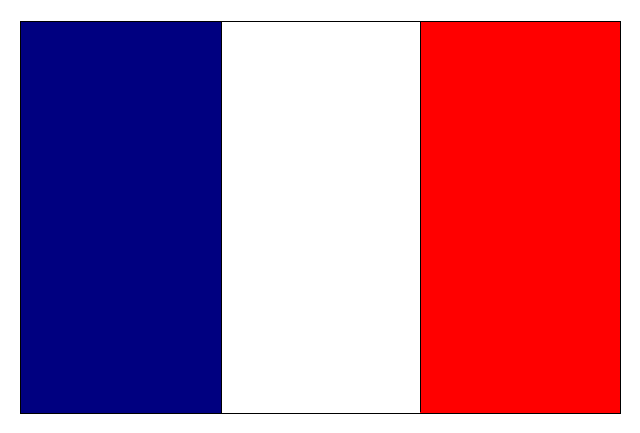Practical information
Weather
https://www.timeanddate.com/weather/japan/
Map of Japan
.jpg) Click on the image to learn more.
Click on the image to learn more.
Calendar
In Japan, there are 16 national holidays per year, and some of them are stacked into longer holiday weeks like "Golden Week" (around May 3rd), "Silver Week" (around September 20th), "New Year" (between December 29th and January 3rd) as well as the "Obon" (around mid-August, Buddhist event for commemorating one's ancestors), which are Japan's four busiest holiday seasons. Flights are pricey and trains, traffic and sightseeing spots become VERY crowded during these periods, and accommodations and tickets can get fully booked up further in advance. Early planning and reservations are highly recommended, if you plan to travel during these periods. In contrast, taking a vacation before and/or after Christmas is not very common in Japan and until late December, Japan remains in a state of relative normality. Please refer to the following Japanese calendar and national holidays.
https://www.timeanddate.com/calendar/?year=2024&country=26
Shops, restaurants and tourist attractions are generally open on weekends and national holidays, except the New Year period, which is generally defined as from 1 to 3 January.
Clothes
Often, Tokyo is bigger than you might imagine. We will go through the capital all day long (particularly in the « Core showcase »), so pay attention to the distance to cover during your travel even without your guide. It’s recommended to wear light clothes, pants, t-shirt and/or light jacket (according to the season), and most importantly comfortable shoes. Better to have a cap/hat at hand in the summer. When visiting temples or shrines, please wear more modest clothes.
Coronavirus manners
COVID-19 infections have caused great impact worldwide, and Japan is no exception. Over 80% of the country’s population are fully vaccinated, and the vast majority of people widely follow coronavirus manners. Japan’s guidelines on wearing masks were eased, yet many continue to wear them in most indoor situations, on crowded trains and outdoors where you come in close contact with other people. Hand sanitizers are generally provided at the entrance of shops, restaurants and hotels. Many establishments will take your body temperature and may refuse access to any people presenting a temperature over 37.5 degrees Celsius (99.5 degrees Fahrenheit).
https://graphics.reuters.com/world-coronavirus-tracker-and-maps/countries-and-territories/japan/
Transportation
To get around efficiently in Japan, the JAPAN RAIL PASS is a good deal. For those interested in traveling with the Pass, there are three ways to purchase one.
*On the internet; Visit the official Japan Railways (JR) website. After purchase, online seat reservations are possible and you can pick up your pass in Japan presenting your passport. However, their prices are about 12% more expensive than those of the pass purchased through a travel agent before departure.
*Through a travel agent outside of Japan; Firstly, you need to purchase the Exchange Order (voucher) at an authorized sales agent or sales office before coming to Japan. Once arrived, bring the voucher and your passport to the designated counters of JR to receive your pass. You can specify the date you want to activate the pass, which can be any date within one month from the date the pass is received. The agent at the location where you purchase your Exchange Order will explain the eligibility requirements for the JAPAN RAIL PASS.
*At selected major stations inside Japan; The pass can be purchased after arrival but at an increased cost, as is the case in the purchase on the JR website.
In general, seat reservations are optional on most trains, but if you travel in groups or during busy travel periods (GW, summer and New Year holiday seasons), it is highly advisable to make seat reservations. They are free of charge for pass holders but it is necessary to issue the reserved seat ticket at the ticket vending machine or JR ticket office (Midori-no-madoguchi).
This pass is valid for unlimited rides on the JR network except for the fastest bullet trains (Shinkansen NOZOMI and MIZUHO). Pass holders using a NOZOMI or MIZUHO will have to pay the full fare, but there are enough alternative trains not to be inconvenienced. It’s better to use the pass on relatively long journeys, rather than for getting around the city for one day in Tokyo. If you start and end your travel with Tokyo, it would be better for you to tour the urban area either before or after the use of the JAPAN RAIL PASS. In the metropolitan area, one-day open ticket on the subway lines is available and costs 600 yen or 900yen.
For those who want to travel around specific parts of Japan, the Regional JR Passes are a great deal. These passes can be purchased both outside and inside Japan.
https://www.japan.travel/en/plan/jr-rail-passes/Regular ticket prices and timetables can be found on Hyperdia.
Accommodations
Onsen (hot springs)
How to get connected to the Internet
Wi-Fi access in Japan has quickly been evolving over the past years. There is a variety of solutions to stay connected to the internet and the number of Wi-Fi spots is increasing. Here are five options to get connected using your smartphone in Japan.
1. Rely on Free Wi-Fi hot spots (no phone calls, but voice-over-IP like Skype is possible)
Install Free Wi-Fi Apps
https://www.ntt-bp.net/jcfw/en.html
2. Rent a Wi-Fi router with cellular connection (no phone calls, but voice-over-IP is possible)
https://www.globaladvancedcomm.com/pocketwifi.html
3. Buy a pre-paid data SIM (purchase from vending machines is also possible)
https://www.bmobile.ne.jp/english/index.html
https://t.iijmio.jp/en/index.html
4. Buy a pre-paid data & voice SIM
https://sim.telecomsquare.co.jp/data_voice.html
5. Take out a roaming contract (this allows both phone calls and data, but is the most expensive option)





